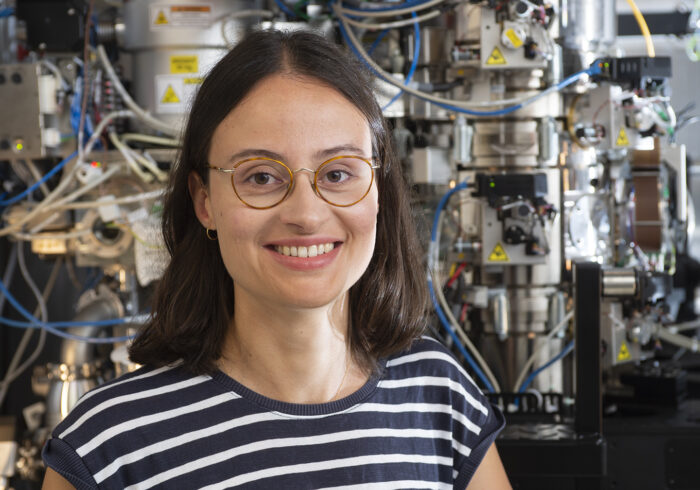
The LMB is delighted to announce the appointment of Juliette Fedry as a Group Leader in our Cell Biology Division, where she will study cellular proteostasis networks in physiology and diseases.
Juliette commented, “I am delighted and honoured to join the LMB Cell Biology Division. My research uses structural biology approaches to investigate cell biology processes, and I can’t think of a better place for this combination. My lab aims at understanding the organisation of macromolecular mechanisms associated with distinct cellular functions. I am looking forward to great collaborations with my colleagues, combining everyone’s expertise to tackle exciting challenges.”
Our bodies are built from trillions of cells of at least several hundred varieties. To maintain our health, each cell relies on thousands of internal biochemical reactions carried out by around ten thousand different types of proteins. The cell’s proteins (called the proteome) must be made in the correct quantities, folded into a precise shape, and placed in the correct location. The process of maintaining a cell’s proteome within normal limits is called proteostasis. A complex network of molecular machines is tasked with producing the correct amount of properly folded and assembled proteins and making them available at the right location and time. The machines that comprise this proteostasis network include the ribosome, which synthesizes new proteins, chaperones that help new proteins fold, and degradation factors that eliminate incorrect or damaged proteins.
Juliette aims to investigate the molecular basis of proteostasis regulation in normal cells and tissues. With this foundation, it can be seen how this process changes during various disease states associated with altered proteostasis, such as cancer and neurodegeneration. To visualize these processes in cells, Juliette’s group will employ an advanced combination of light microscopy, electron cryo-microscopy (cryo-EM), and computational analysis. This interdisciplinary approach will advance molecular understanding of proteostasis networks in the context of normal and diseased tissues. Looking ahead, resulting insights into pathogenesis could facilitate new therapeutic approaches for restoring cellular function.
After studying at Ecole Polytechnique, France, Juliette went on to a PhD in Structural Virology at Institut Pasteur, France. Following this, Juliette undertook postdoctoral studies in the Structural Biochemistry group at Utrecht University, Netherlands. With the successive support of postdoctoral fellowships (EMBO long term, MSCA and NWO Veni), she implemented electron cryo-tomography (cryo-ET) approaches to visualize protein folding in native Endoplasmic Reticulum membranes and cellular stress responses in intact mammalian cells.